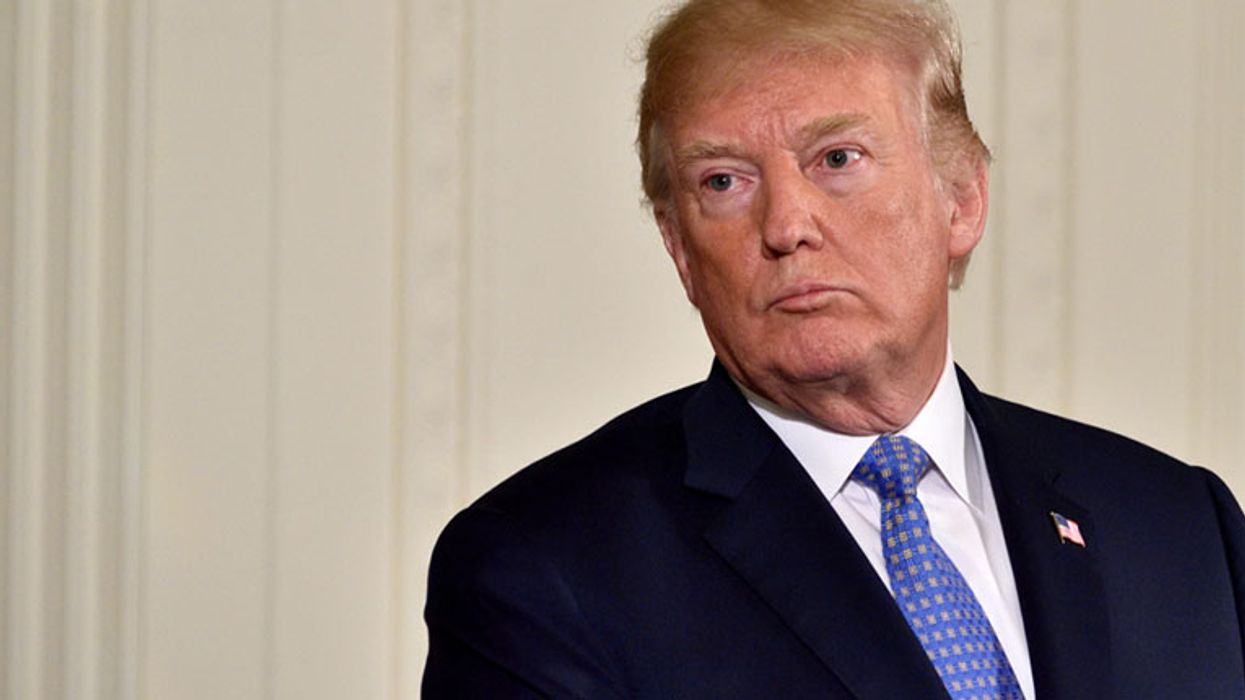Voters in these 7 swing states say they won’t vote for Trump if he’s convicted


While former President Donald Trump still enjoys a slight lead over President Joe Biden in most head-to-head polls, all of that hinges on whether Trump will be convicted on any of the 91 felony charges he's currently facing.
In a recent poll of swing state voters conducted by Bloomberg and Morning Consult, 53% of the 4,956 respondents polled say they wouldn't vote for the former president if a jury convicts him of a felony. 55% of the survey's participants said they wouldn't vote for him if he's sentenced to prison prior to the November election.
Pollsters focused their sample on voters in the swing states of Arizona, Georgia, Michigan, Nevada, North Carolina, Pennsylvania and Wisconsin, whose combined 93 Electoral College votes will almost certainly play a role in deciding who wins the general election this fall. The sample included Democratic, Republican and independent voters, and even 23% of Republican respondents said they wouldn't support Trump if he was convicted of a felony.
POLL: Should Trump be allowed to hold office again?
As a defendant in four upcoming criminal trials, the 45th president of the United States will have to conduct the bulk of his campaign from the courtroom — for both the Republican nomination and the general election. Trump's first trial will likely be in Manhattan, where district attorney Alvin Bragg is prosecuting him for falsification of business records to allegedly cover up hush money payments to porn actress Stormy Daniels.
Meanwhile, Fulton County District Attorney Fani Willis has called for an August trial date to try the former president and his dozen-plus co-defendants in her sprawling RICO case alleging election interference in Georgia. That trial could potentially be moved up depending on what happens in federal courts. Even if Trump wins in November, he wouldn't be able to pardon himself for state-level convictions in either Manhattan or Fulton County, as presidential pardons only affect federal cases.
The former president's two federal trials are scheduled for this March and May, respectively. However, those will likely be delayed as a DC Circuit Court of Appeals panel is still weighing Trump's claim of absolute broad presidential immunity. Depending on how the panel rules, Trump could appeal the decision to the full circuit in an en banc motion, and ask the Supreme Court of the United States (SCOTUS) to issue a writ of certioriari to hear the case if he strikes out in the DC circuit.
Department of Justice special counsel Jack Smith is meeting with US District Judge Aileen Cannon on Wednesday, who is overseeing Trump's trial for alleged mishandling of classified documents. Cannon has issued multiple rulings delaying pre-trial procedures, which risk postponing the May 20 trial to potentially after the election.
READ MORE: Conservative legal scholar calls for impeachment of Judge Cannon: 'Member of the Trump defense team'